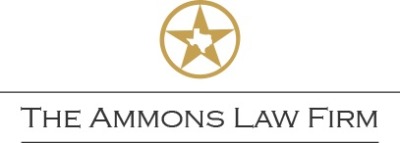Systemic Exposure in High-Severity Trucking Accidents
The legal risk profile of the commercial trucking industry has evolved significantly. In major crashes involving tractor-trailers or semis, litigation often reveals failures far beyond a single driver’s actions. Plaintiffs now routinely examine internal corporate policies, pressure-driven delivery deadlines, and safety oversight gaps to establish liability against carriers and logistics operators.
A serious crash involving a fatigued or undertrained driver can trigger not only personal injury or property damage claims—but also wrongful death litigation. When the result is fatal, families may consult a Wrongful Death Attorney to evaluate their rights under civil statutes. These claims often uncover deep-rooted safety lapses like outdated driver vetting systems or the lack of real-time monitoring technologies. An experienced Truck Accident Attorney plays a central role in unearthing how routine business practices can translate into catastrophic roadway events.
Corporate Risk, Coverage Disputes, and Legal Accountability
Today’s civil litigation routinely tests the boundaries of insurance coverage in trucking cases. Multi-layered commercial policies, contractor-based driver relationships, and self-insured retention programs can delay resolution and complicate settlement negotiations. For those pursuing justice after fatal or debilitating crashes, identifying all liable parties—especially under shared duty arrangements—is crucial.
Strategic use of discovery can reveal indemnity provisions, contractual loopholes, and hidden insurance triggers, all of which directly affect the path to compensation. When families are represented by a Wrongful Death Lawyer, they depend on litigation teams to navigate this web of financial responsibility. In cases where victims suffer life-altering harm due to a company’s systemic failure, the legal outcome often hinges as much on insurance structure as it does on negligence itself.
Texas Law and the Realities of Operational Compliance
The trucking sector must adhere to a dense overlay of federal and Texas-specific regulations. But even technical compliance doesn’t always prevent legal exposure. Some companies create substantial safety risks by failing to implement internal best practices—choosing paperwork compliance over meaningful enforcement of rest breaks, driver supervision, and vehicle maintenance.
When a collision leads to a fatality, lawyers may discover that fleet managers knew about safety issues but did nothing. These implementation failures form the core of wrongful death claims, which are pursued by surviving families through a qualified Wrongful Death Lawyer. Civil litigation then becomes not just a route to compensation, but a mechanism for exposing dangerous patterns and enforcing accountability.
Wrongful Death and High-Stakes Civil Representation
Trucking accidents that result in fatalities leave families with emotional devastation and a host of legal questions. A Wrongful Death Lawyer must manage both the practical and emotional realities of litigation while uncovering the root causes of the tragedy. These cases frequently demand expert testimony across safety, economics, and medicine to accurately project loss and quantify damages.
In litigation involving an 18-Wheeler Accident Attorney or Commercial Truck Accident Attorney, legal teams often focus on how the crash occurred—and why it was preventable. Survivors or families pursuing claims after fatal incidents benefit from legal strategies that encompass both liability development and forward-looking care planning. The stakes extend beyond individual recovery to potential changes in how carriers train drivers, monitor hours, and maintain their fleets.
Litigation Outcomes and Public Safety
Truck accident litigation has increasingly become a tool for industry reform. Successful cases not only deliver financial redress but prompt internal investigations, new compliance systems, and shifts in corporate culture. Some of the largest civil verdicts in Texas have stemmed from fatal commercial crashes, exposing how operational shortcuts contribute to devastating consequences.
By working with Personal Injury Lawyers committed to long-term accountability, victims and families can help reshape industry standards. When wrongful death claims arise from preventable trucking incidents, the legal process carries consequences beyond compensation. It holds institutions accountable, elevates safety benchmarks, and ensures tragedies are not repeated. Every personal injury case is a chance to confront corporate negligence—and pursue justice for those left behind.
This content is for informational purposes only and does not constitute legal advice. No attorney-client relationship is formed by reading this article. Laws may vary by jurisdiction. Please consult a qualified attorney licensed in your state for legal guidance specific to your situation.















